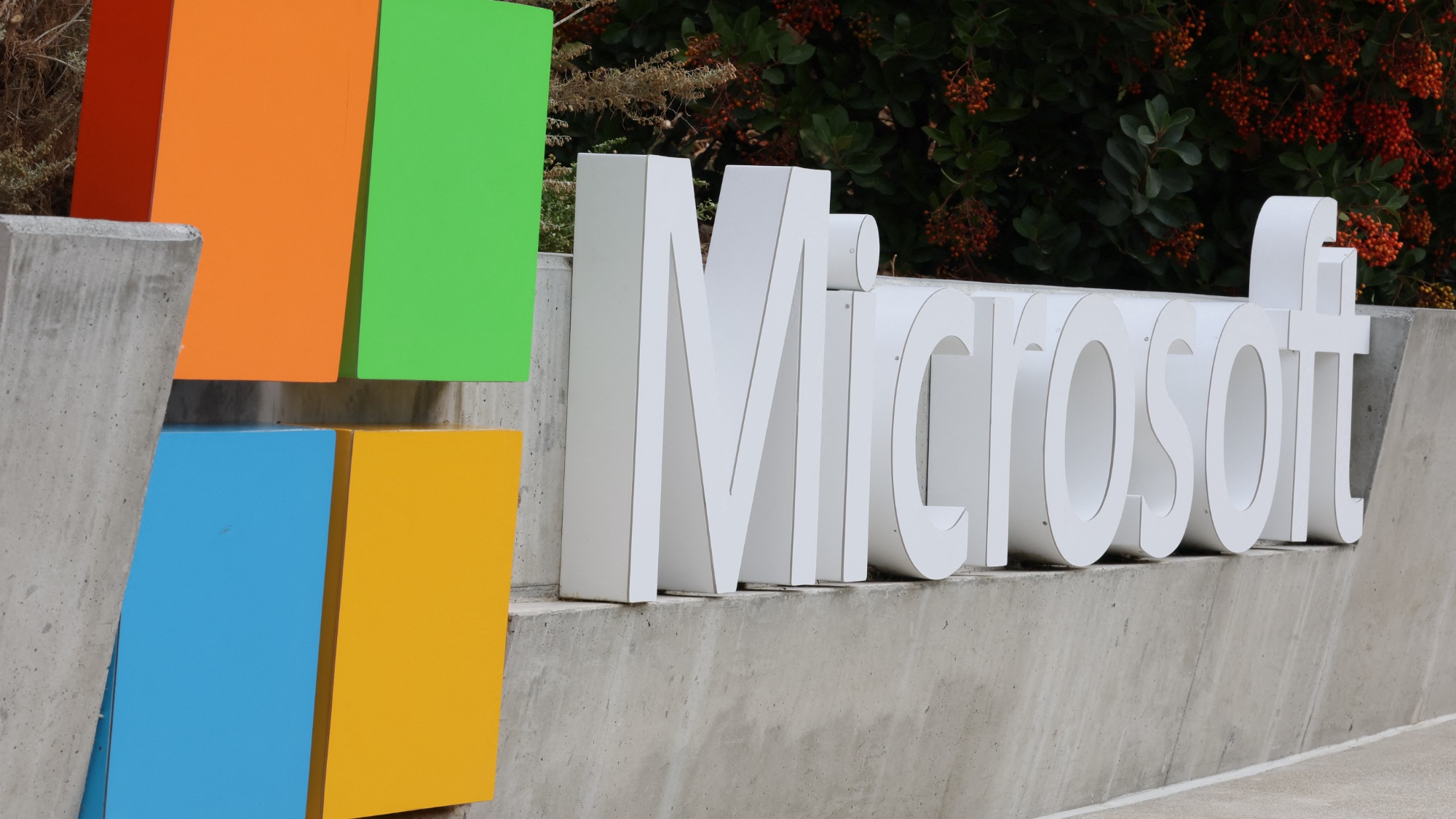Microsoft's OpenAI losses hidden as part of $4.7 billion 'other' expense — stake in AI company still doesn't turn a profit as companies grapple with ongoing contract negotiation
Microsoft’s filings obscure the cost of OpenAI, but Wednesday’s earnings may offer clarity.

Microsoft’s AI ambitions are in large part tied to OpenAI, but the financial picture surrounding the connection is pretty murky. In its latest annual report, Microsoft disclosed a $4.7 billion line item under “other, net” expenses for the fiscal year ending June 30, with no itemized breakdown. What it did admit is that the bulk of that figure reflects “net recognized losses on equity method investments,” according to reporting by The Wall Street Journal. And while it’s long been understood that OpenAI falls into that category, the filing never mentions the company by name, nor does it classify OpenAI as a related party.
Under US GAAP, the equity method is applied when a company has “significant influence” over another, typically with a 20% to 50% stake. That level of influence generally requires clear disclosure of material related-party transactions, particularly if the investee is financially significant. In OpenAI’s case, it is. A recent secondary share sale reportedly valued OpenAI at around $500 billion. Even if Microsoft’s economic stake is diluted below 49% by profit caps or partnership mechanics, the fair market value of its position is still potentially north of $100 billion.
And yet, as of June 30, Microsoft reported less than $6 billion in total equity-method investments across its balance sheet — the same figure as last year. That suggests either OpenAI’s losses have wiped out Microsoft’s carrying amount, or that much of the $13.75 billion it committed hasn’t been recognized as invested capital in accounting terms.
That’s plausible under the equity method because once the carrying value hits zero, further losses are not recorded unless Microsoft commits more funding, at which point the base resets. However, as a result of this opacity, investors cannot tell whether Microsoft is quietly losing billions on OpenAI operations, front-loading infrastructure subsidies, or holding back capital for later phases.
For all its AI dominance in mindshare, Microsoft is spending aggressively to keep Copilot performant and useful across the likes of Azure and Office. Much of that cost is still offloaded to OpenAI’s inference stack, particularly for GPT-4 and Codex-class deployments. If OpenAI’s losses continue to rise and Microsoft refuses to break out how much it’s underwriting the back end, the company’s cloud AI economics will remain speculative. The waters are further muddied by its long-standing deal with OpenAI, containing a clause that would drastically alter the terms of the two's relationship should OpenAI achieve AGI (Artificial General Intelligence).
However, Microsoft is due to report its fiscal Q1 earnings on Wednesday, October 29. If OpenAI still isn’t identified in its reporting as a related party, and the “other, net” line remains the only hint of how much it’s bleeding to stay on top of the model race, investors will be forced to read between the lines yet again. For a $3.9 trillion company whose stock is now priced in part on AI execution, that’s a risk Microsoft probably can’t continue to take.

Follow Tom's Hardware on Google News, or add us as a preferred source, to get our latest news, analysis, & reviews in your feeds.
Get Tom's Hardware's best news and in-depth reviews, straight to your inbox.

Luke James is a freelance writer and journalist. Although his background is in legal, he has a personal interest in all things tech, especially hardware and microelectronics, and anything regulatory.
-
redgarl "For a $3.9 trillion company whose stock is now priced in part on AI execution, that’s a risk Microsoft probably can’t continue to take."Reply
ROFL... are you kidding me? Microsoft has one of the biggest stake in the company at the forefront of the research, and you believe a lost of 5B$ in a private company matter to the investors when the stock is worth 4T$ in market cap?
No, the real business MS is bleeding money in that the investors would like MS to pull the plug on is their gaming division. -
-Fran- Reply
It's more of "for how long" they'll keep burning money without an expectation of a return on investments.redgarl said:"For a $3.9 trillion company whose stock is now priced in part on AI execution, that’s a risk Microsoft probably can’t continue to take."
ROFL... are you kidding me? Microsoft has one of the biggest stake in the company at the forefront of the research, and you believe a lost of 5B$ in a private company matter to the investors when the stock is worth 4T$ in market cap?
No, the real business MS is bleeding money in that the investors would like MS to pull the plug on is their gaming division.
You're not wrong with the sentiment though: they're so blinded by the "AI" shine, they may be overlooking long term reliability for the company itself. Not that I would mind Microsoft going under or, at least, suffering dearly for this. Before that reaches a point of criticality, XBox will die or get extirpated from MS' side, for sure.
Perhaps a bit overly dramatic, but I can't say* the sentiment is not there.
Regards. -
JRStern Reply... or that much of the $13.75 billion it committed hasn’t been recognized as invested capital in accounting terms.
Much of their support for OpenAI has been to provide infrastructure and Azure time, just how that appears on accounting reports I dunno.
And I'm sure the bigs at Microsoft are furious with OpenAI for not monetizing things already and making huge coin by advertising on the site. It doesn't even need to be "profit", just managing capital and capex. About $100b/years worth of managing, LOL. -
SomeoneElse23 Reply
I'd really like some transparency on what is the end goal to this AI fad.JRStern said:Much of their support for OpenAI has been to provide infrastructure and Azure time, just how that appears on accounting reports I dunno.
And I'm sure the bigs at Microsoft are furious with OpenAI for not monetizing things already and making huge coin by advertising on the site. It doesn't even need to be "profit", just managing capital and capex. About $100b/years worth of managing, LOL.
IMHO bleeding money like this hasn't happened since the "dot com" boom, and then crash. -
Carnes Reply
A quick google says their games have a 12% profit margin on $23 billion in revenue. Why pull the plug on that?redgarl said:No, the real business MS is bleeding money in that the investors would like MS to pull the plug on is their gaming division. -
Amdlova Reply
WOKEEEEEEEEEE things... Microsoft is doomed with their game division.Carnes said:A quick google says their games have a 12% profit margin on $23 billion in revenue. Why pull the plug on that? -
JRStern Reply
Sam Altman, Elon Musk, execs at Microsoft, and all their ilk seriously believed and perhaps still do that all they had to do was scale up and up and they would take over the planet and possibly the universe. All they needed was mo' money. The winner could afford anything, the losers, well, not so much, LOL.SomeoneElse23 said:I'd really like some transparency on what is the end goal to this AI fad.
Whether or not they still believe it they don't know how to stop acting like they believe it, or all their funders would say, "Hey!"
So ask yourself, what is the size of the bet you should make rationally, if that is the prize? -
palladin9479 Reply
Just remember that Google, Amazon, Oracle and Microsoft all came out of that period. It will be the same with "AI", once the artificial hype dies out, stock valuations will plummet and trillions of USD worth of value will be wiped out in a very short time. The winners will be the companies who effectively leveraged the technology for profit, the losers will be everyone else.SomeoneElse23 said:I'd really like some transparency on what is the end goal to this AI fad.
IMHO bleeding money like this hasn't happened since the "dot com" boom, and then crash. -
phead128 I used "CoPilot with ChatGPT 5" at work, I don't know why, but it's pretty Dogshit compared to OpenAI's GPT 5 on the paid plus plan.Reply
I doubt they are making much money. I don't see a viable path for them since they don't have any own their own AI products. They have a nerfed version of GPT 5 that's only good for writing emails and summarizing basic stuff. -
thestryker Reply
Their gaming business has been profitable for a while. The only problem over there was the huge capital expenditure of buying ABK.redgarl said:No, the real business MS is bleeding money in that the investors would like MS to pull the plug on is their gaming division.
The company has been pushing leaner operations across the board to cover for the AI losses. Not to mention their CEO is a true believer and has been pushing the usage of AI company wide.